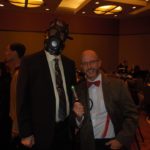Fiction Friday – The Ice Child By Evangeline Denmark
The Ice Child: A Winter Fairy Tale
by Evangeline Denmark

INTRODUCTION
In the novelette, The Ice Child, Sipp, a clockmaker’s apprentice, dreams of opening his own shop, but the people of Martigny believe he’s marked by the devil—all except for kind, independent Elise. As Sipp’s hope for the title of master craftsman fades, another destiny calls to him on the winter wind. But will answering that call mean leaving Elise behind forever?
THE ICE CHILD — EXCERPT
Author’s Note
Like many folktales, the story of the ice child can be found in several cultures. The basic version goes something like this: A man returns from a long journey to find his wife has given birth to a child who obviously can’t be his. The wife tells him she felt compelled to eat an icicle, or a frost-covered leaf, fell pregnant, and delivered a baby. Sometime later the husband takes the child with him on a market trip only to return without him, claiming the sun grew hot and the child melted.
I used this snippet of fable as a starting point for Sipp’s story.
18th Century Switzerland
Sipp remembered cold like a childhood home. He feared it would find him again so he wore a scarf and fingerless gloves indoors, just in case the cold did come and turned out to be his mother. But he didn’t look up when the door of the shop opened and the winter wind rushed over the cuckoo clocks and carved horses and cows to stroke his cheek. Faster than a startled hare, Sipp tucked his chin deep into the knitted folds of his scarf and yanked the edge up over his mouth. His cool breath threaded through the yarn, mixing with the ever present scent of stone pine.
Madame swished out of the little parlor in the back where she’d been scratching in a ledger, past Sipp at his workbench, and into the front of the shop. She murmured a welcome to the patron, but the voice that returned the greeting sent a flicker of heat through Sipp, followed by something best described as terror. His carving knife stilled over the tiny wooden bird in his hand and he lifted his eyes.
Elise Bonnay stood amongst the clocks and toys, wrapped in a fur-trimmed cloak and chapeau. Her cheeks were bitten pink from the cold, and her golden hair tangled as if the wind had taken liberties with her loveliness. She brushed a lock from her face and turned gentian blue eyes on Madame.
“I;m here about my father’s timepiece.”
Madame’s back stiffened, and Sipp braced for the scolding that would come the moment Elise stepped out the door. But to Elise, Madame was all courtesy. “I’m sorry Miss Bonnay, but the clock is not yet finished.”
“Oh no, Madame Nikolas, you mistake my meaning.” Elise’s lips crumpled at the edges, and then her words tumbled out as if they could cover the ticking of the clocks. “I’m afraid we will not be able to pay the remaining sum this week. Georgette has fallen ill, and with Papa still away, I had to use the money I’d saved for his gift to pay the doctor.”
“Calm yourself, Miss Bonnay.” Madame’s voice stopped just short of warmth.
Elise’s gaze darted to Sipp, and in the moment before he looked away, he saw something familiar in her expression. Alarm. He instinctively reached to adjust his scarf.
Madame explained that the clock would be held until the Bonnays could pay for it. Her voice droned on, words fading as a sense of dread invaded the clockmaker’s shop. Sipp risked another peek at Elise’s drawn features, and his fingers tightened on the trinket in his hand. Georgette’s illness must be grave.
With a final not and stammered thanks, Elise left the shop. Before Madame could turn around, Sipp was off his stool and rushing to the back door.
“What’s this, then?” Madame’s voice prickled in Sipp’s ears as he snatched his cloak and pushed into the shadowed alley. He ought to give her an explanation. After all, he did still live here as an apprentice in a tiny room behind the shop, despite his seventeen years and journeyman skills. But the chance to talk to Elise overruled etiquette and would be worth Madame’s rebuke.
Dark ice, brittle and sharp, crusted the pathway behind the market street shops. For a moment, Sipp imagined patters in the frozen surface like stained glass, but he shook off the strange illusion. He pulled his cloak close around his thick work shirt and leather breeches then found his way up the gloomy alley. At the top of the hill, he rounded the chandler’s and emerged into Martigny’s square. He wrinkled his nose, glad his scarf blocked some of the awful tallow scent from Meister Gerber’s wares. When Sipp opened his own shop, he’d so it where the air was sweet and clear.
He spied the hem of Elise’s skirts swishing into the milliner’s and crossed the cobblestones, picking his way around mirrors of ice that tossed back his muffled reflection and piles of snow waiting to catch him should he stumble. He found a spot beneath the eaves of the inn, hidden from view of the clockmaker’s shop by the frozen fountain in the town center.
The townspeople gave him no notice as they hurried in and out of shops decorated with pine garlands and the likeness of the angelic Christkindl—the gift bearer. Once a year, the people of Martigny had no trouble accepting the notion of a strange, spirit child. If only that indulgence extended to their fellow humans of ill-favored birth. A gust skimmed over his shoulders and tugged at his coat. The scent of coming snow stole beneath his scarf to tease his senses.
In a moment, Elise emerged.
AUTHOR BIO
 Evangeline writes fiction with hints of whimsy, glimmers of fantasy, and strokes of the supernatural. Her debut novel CURIO was an RT Reviews Top Pick for February 2016, and USA Today’s HEA blog called the world-building “two levels of genius.” A Young Adult Steampunk Fantasy with shades of The Wild, Wild West and The Wizard of Oz, CURIO sets coming of age and first love against a backdrop of steam-propelled greed and societal repression. Hypable included CURIO on its list of 10 Books that Celebrate Girl Power.
Evangeline writes fiction with hints of whimsy, glimmers of fantasy, and strokes of the supernatural. Her debut novel CURIO was an RT Reviews Top Pick for February 2016, and USA Today’s HEA blog called the world-building “two levels of genius.” A Young Adult Steampunk Fantasy with shades of The Wild, Wild West and The Wizard of Oz, CURIO sets coming of age and first love against a backdrop of steam-propelled greed and societal repression. Hypable included CURIO on its list of 10 Books that Celebrate Girl Power.
Evangeline lives in Colorado in a house stuffed full of animals and creative people that would surely go to ruin were it not for the watchful eye of a cattle dog named Willie.










































